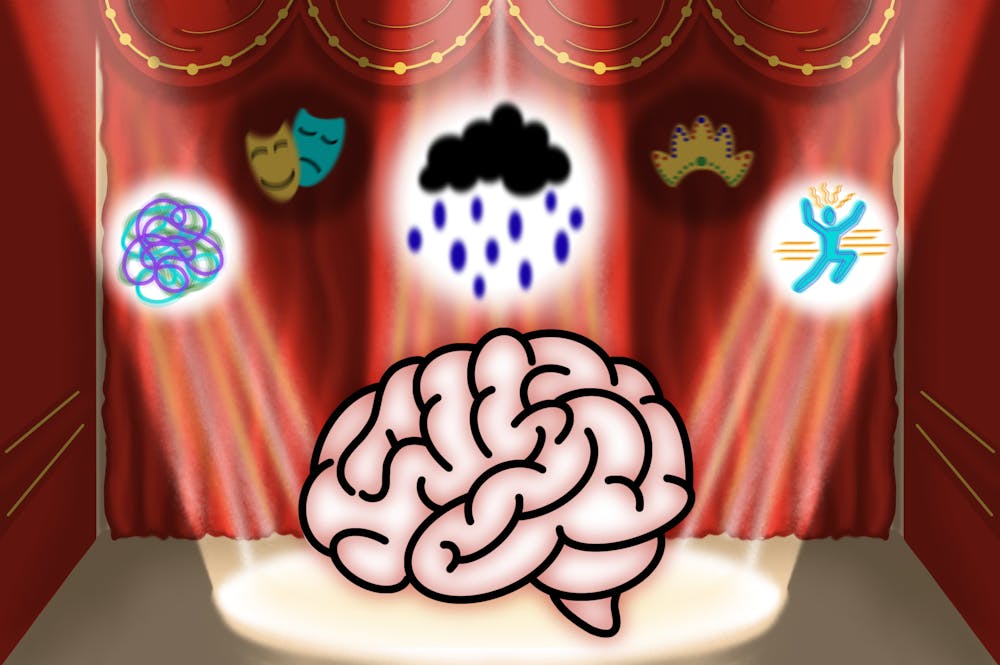The modern attitude toward mental illness has come a long way from the days of bloodletting, isolation and lobotomies. On social media I often stumble upon infographics about anxiety or depression, and many universities have implemented regular well-being days to encourage students to prioritize their mental health.
In some ways, mental illness has become just another quirk of existence that people make light of through humor. I notice friends giggling over sharing the same antidepressant prescription and TikTokers incorporating Lexapro into their usernames. If I joke in the same way about my mood stabilizers or antipsychotics, it does not land as well.
Despite the recent surge in mental health advocacy, some more “extreme” illnesses like bipolar disorder, borderline personality disorder and narcissistic personality disorder have been left out of the conversation and remain highly stigmatized in popular culture and casual conversation.
Illnesses like anxiety and depression can sometimes manifest more discreetly, harming those afflicted but flying under the radar of loved ones. This makes them easier for most people to sympathize with, as they are not always directly confronted with the discomfort of the illness.
When an illness is more apparent, it can seem inconvenient to others and even unintentionally harm them. People with mental illnesses should not be above accountability, but we cannot allow some negative symptoms to color our entire conception of a condition and reduce it down to its worst manifestations. This ostracizes victims of these disorders, compounding their inherent suffering with the added issue of isolation.
It is common to see people flippantly diagnosing people who have wronged them with bipolar disorder or narcissistic personality disorder, watering these illnesses down to insults and reinforcing their associations with harmful behavior.
As we perpetuate stereotypes, we make it harder for people to seek help. In the case of narcissistic personality disorder, which is highly misunderstood and actually rooted in a deep sense of shame and self-hatred, it is extremely counter-productive to stigmatize it. Someone who already deals with low self-esteem would likely not want a diagnosis that has been made synonymous with “evil.”
Popular culture representations also paint already-misunderstood illnesses in an unnecessarily bad light. In the first 10 minutes of the 2019 film "Midsommar," we witness a murder-suicide attributed to a character’s struggle with bipolar disorder, implying that it is violent and scary.
For movies and shows to depict mental illness as entirely positive experiences would be inaccurate, but they tend to follow stereotypes of extreme violence for the sake of plot advancement, rather than crafting nuanced characters that humanize the condition.




